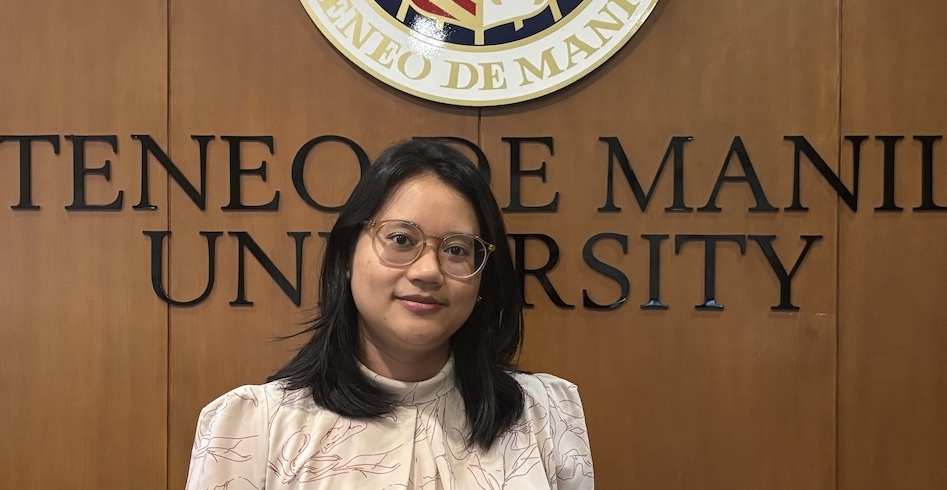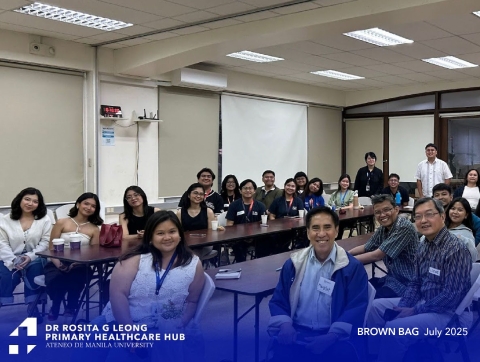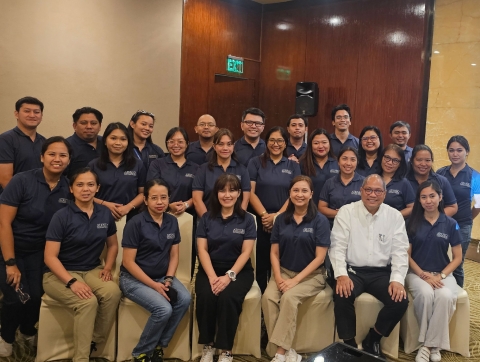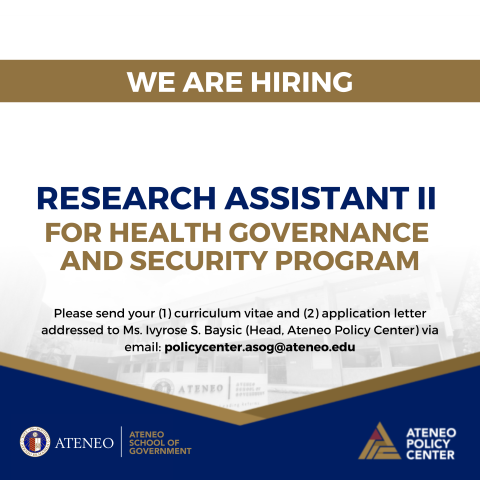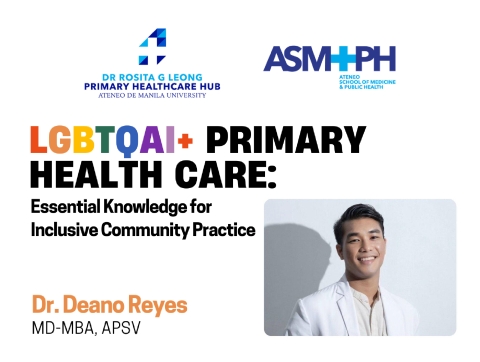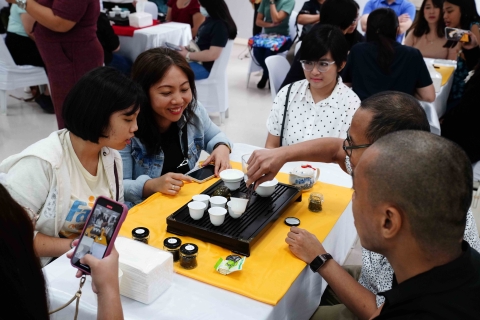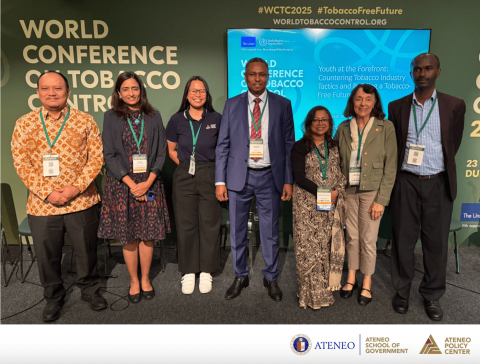Honoring the process: Angelique Villasanta and her Ateneo PhD journey
05 Jun 2025 | KD Suarez
In the five years following the completion of her master’s degree in psychology, Angelique Pearl Virtue Villasanta (PhD Clinical Psychology '25) — this year’s graduate students' representative of the Class of 2025 — felt as though her pursuit of a PhD program was going nowhere.
Angelique has been with Ateneo de Manila since her college days, where she earned both her undergraduate and master’s degrees in psychology. Now, a PhD was the next step in her goal to contribute further to her profession. Thinking she wouldn’t contribute much to the field if she stayed in the Philippines, she initially planned on pursuing further studies abroad.
"I spent it looking at programs, contacting supervisors — I think naka-bingo na ako sa lahat ng continents! — and it would always be getting into the university but not getting the scholarship," she recounts.
"It was a really draining experience," she says. "It’s a long process, and then it’s heartbreaking when you have an almost-win and then not get it."
It eventually became clear to her that she was just trying to fit into places where she wouldn’t really grow. She realized that it was actually Ateneo that was the best fit for her.
"It just came to that point where my own question became clear for me," she says. "I felt that, OK, I'm ready because I have a clear dissertation project, and I know that there’s nowhere out there where this will fit… I knew [Ateneo] was a space that would just allow me to pursue the [research] question that I had," she says.
Long road to healing
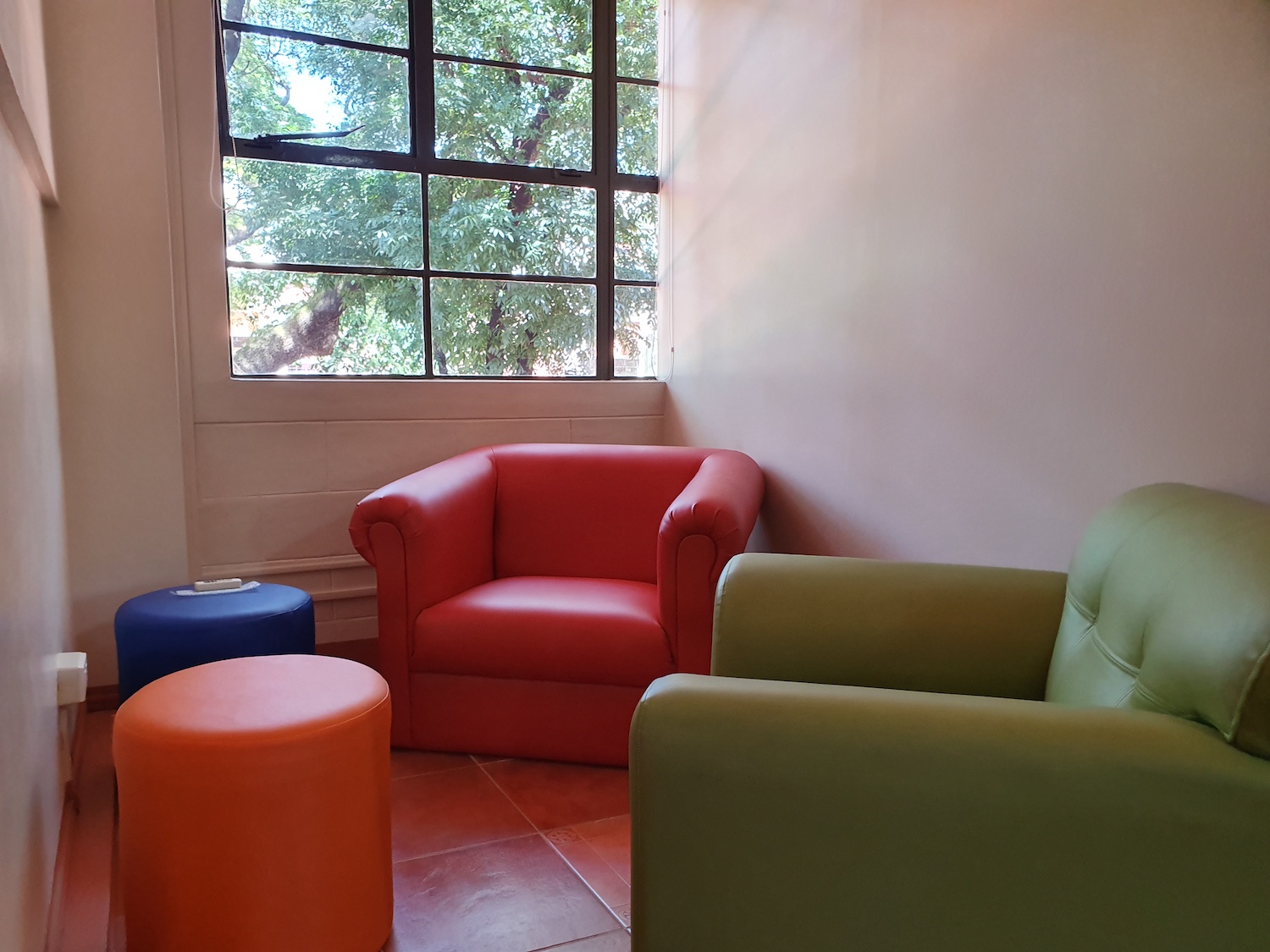
Her dissertation drew from her work as a gender advocate and psychologist, and focused on the healing journey of survivors of sexual violence.
"In existing literature, there’s a lot written already about healing after sexual violence, and usually it’s just described as happening in stages... and then you reach a point where you’re healed," she explains. "But it’s not like that [in real life]."
"I had a mentee who does not have a lived experience of sexual violence, and her expectation was that in counseling she would guide women to go through these stages. She was like, ‘What is happening? Why is it not falling into stages?’" she recalls.
Her dissertation reframes "healing" as "becoming," and recognizes it as a journey and experience that is not a straight road.
"It’s a non-linear path. Right now in existing literature, when you ‘go back,’ it means you get re-traumatized — you’re not healed. But if you look at it through this lens, it’s part of the process."
"When you ‘return,’ you actually take a different path," she explains. "So during each ‘return,’ you are actually expanding your own way of relating to [the experience]. Sometimes there’s self-blame; sometimes there’s doubt, or anger. Then there are instances of ‘going back’ when you realize, ‘Oh my God, I was able to overcome that. Oh my God, that kid was strong enough to survive that experience.’"
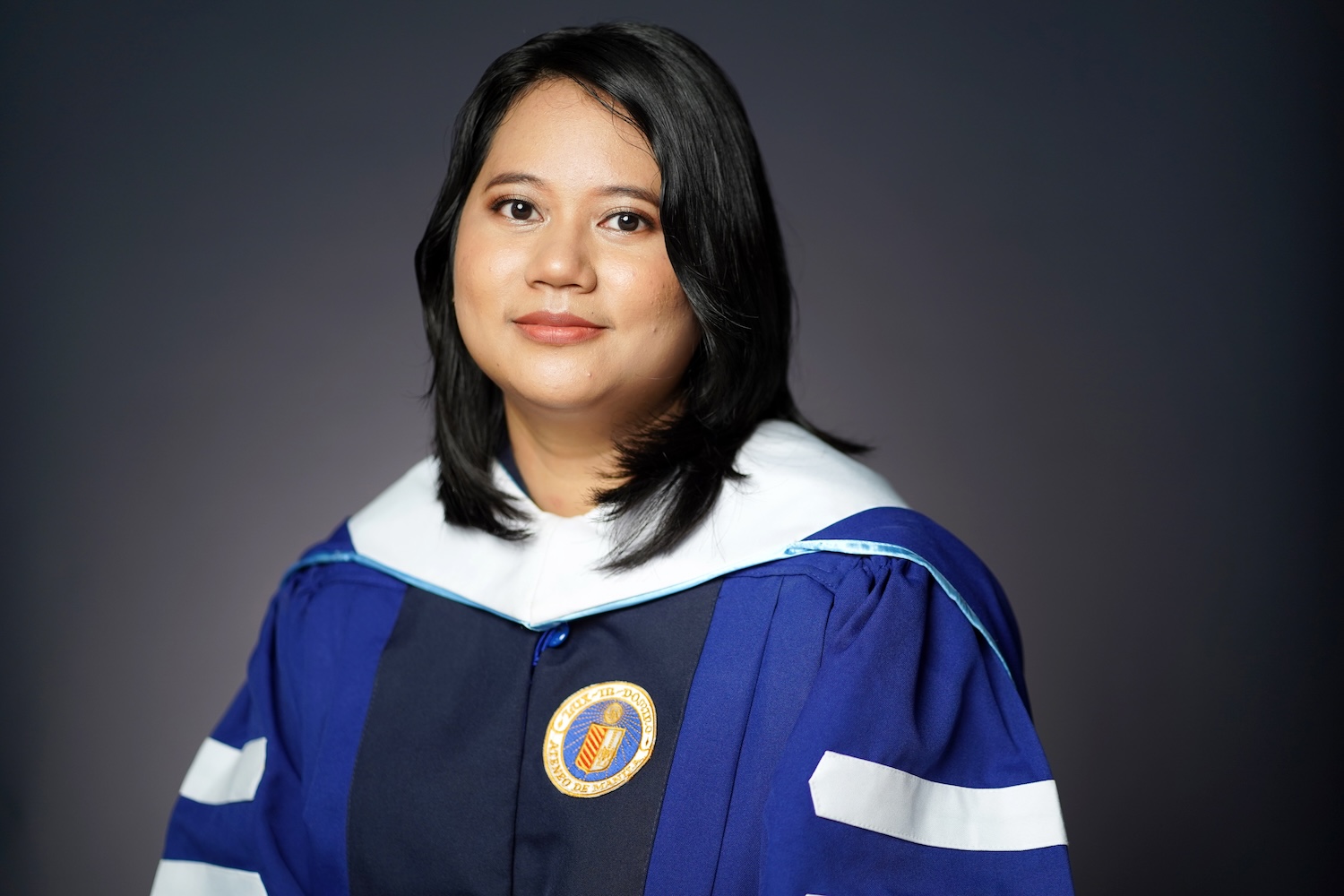
"May pagbalik na kaya mo na siyang hawakan, hindi ka na niya nilalamon," she adds. "The value of the dissertation really is rethinking the limits of linearity [in the healing process]."
After her PhD, Angelique plans to continue working as a teacher, gender advocate, and psychologist at Ateneo. At present, she teaches at the Department of Psychology and is a Case Response Coordinator at the University Gender Hub. She is also a psychologist at the Bulatao Center, providing psychotherapy and counseling to clients.
"It also means using the insights from the dissertation to invigorate the things that we do in the Gender Hub [and] to think more creatively about how we respond to sexual violence," she explains.
She also plans to continue mentoring young psychologists at the Department of Psychology and at the Bulatao Center, and to show that research and practice are interconnected.
"Part of my agenda is to share with them how practice and research are not really separated; it’s not anymore practice-dash-research. It’s ‘practice has research’ and ‘your research should lead to practice.’ It’s just one thing."
Finding your tribe
The dissertation experience was, in her words, "consuming."
"[One night] I was hammering out my manuscript and I remember starting to type while hearing my husband’s snoring," she recalls. "I continued typing but then I realized my husband was already awake — it was already morning. I was just typing the whole night, and that would happen for days."
She felt like it was just her and her dissertation. "The feeling was like parang tinabunan ka ng lupa and I was just trying to crawl my way out of it. Then finishing it, seeing the full manuscript — and there was light breaking through na hindi na ako nakabaon sa lupa."
But at the same time, she realized she was never alone in her PhD journey. She belonged to an all-girl research group, Angelique shares, and they called their research "girl research."
"Even if the topic is sexual violence, we allow ourselves to cry, to laugh, to be makulit, to be transgressive."
"That was really important for me — that research can be something like this. It can be like girls just playing with each other and thinking about all of these delulu ideas," she shares. "There are parts of research or the process that feel solitary, but there are parts where it was so important for me that I was in a group that really understood me."
Honoring the process
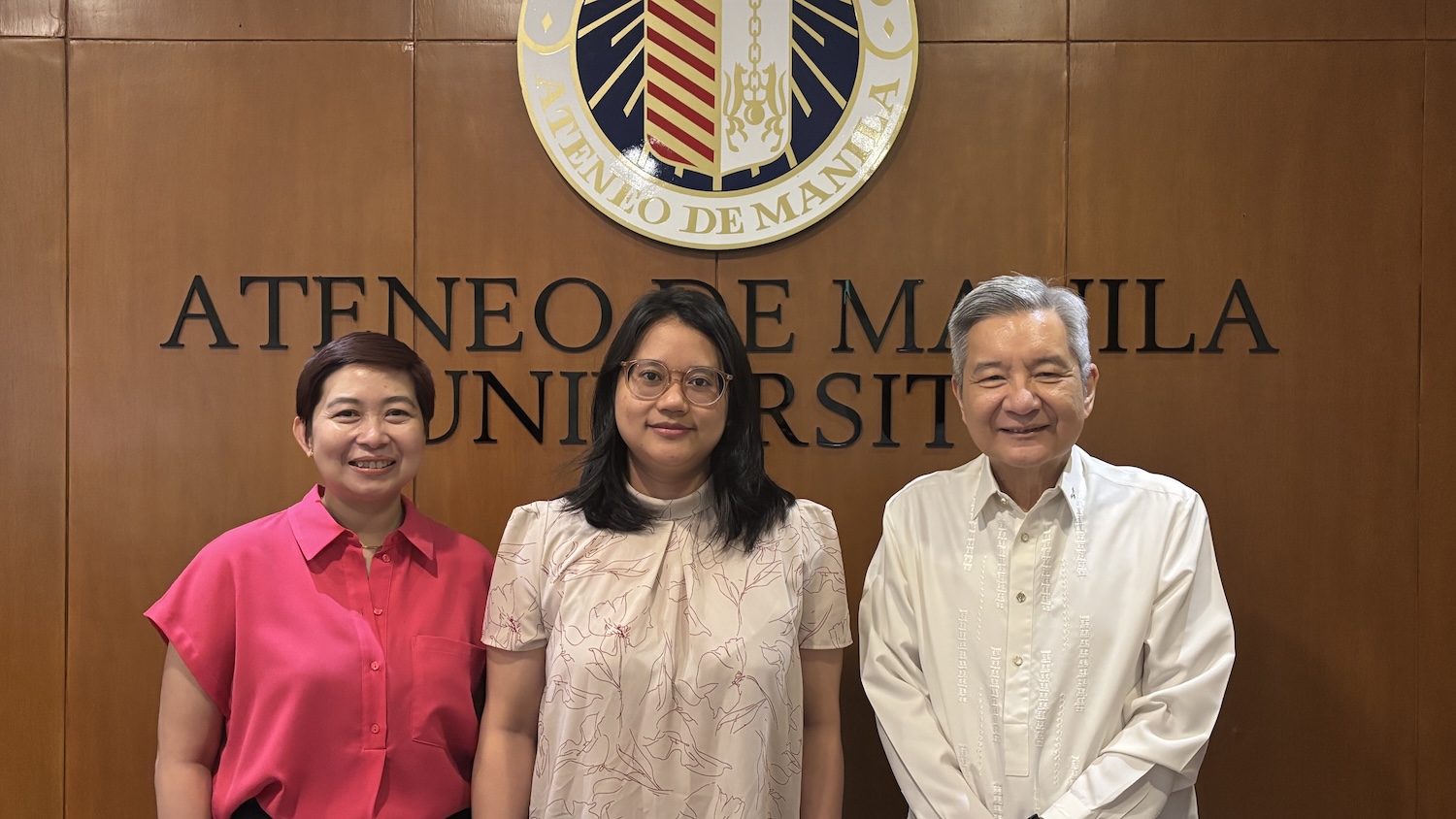
She also said that taking up graduate studies at Ateneo allowed her to fully explore her academic interests.
"Going back to how it was before the PhD — it was always about fitting in. What did the funder want? What did the university want? What did this research supervisor want?" she says. But in Ateneo, her mentors "saw me as a graduate before I even graduated."
"I feel so lucky to be mentored in such a way that it was… I felt allowed to be myself. I felt allowed to think about my questions. I felt allowed to explore, and I felt trusted," she says.
This is why Angelique decided to accept the invitation to apply to be this year’s graduate students’ speaker.
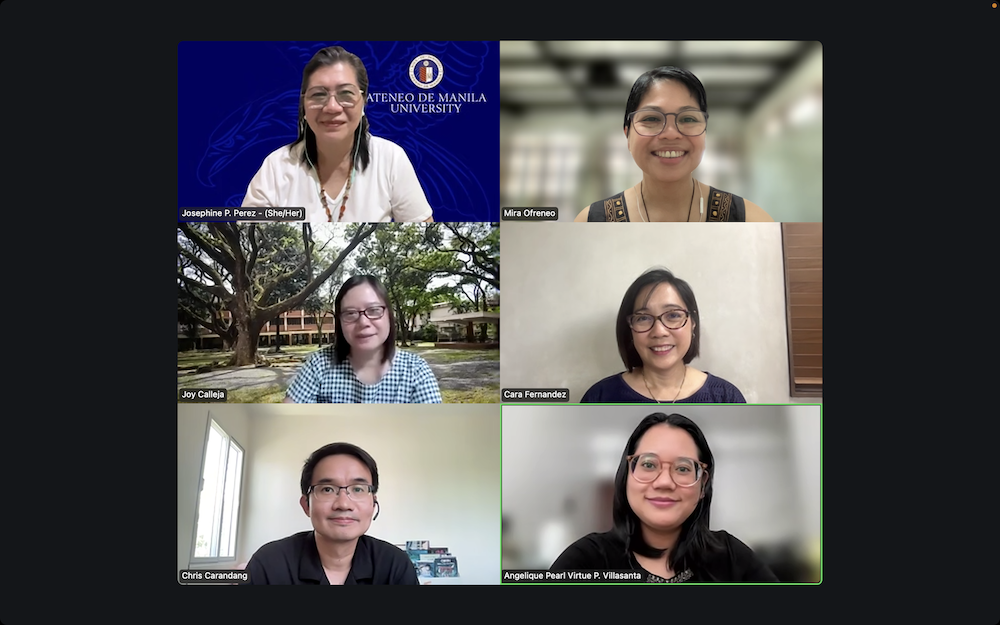
"I really appreciate that there’s a [graduate students’] representative speaking at the graduation," she says. The honor is given to the student whom the deans of the five higher education schools — Education and Learning Design, Humanities, Management, Science and Engineering, and Social Sciences — believe best represents the graduating class. This designation was first introduced as part of the 2020 commencement.
"This is my way to honor the process, and I wouldn’t want to make myself feel that the process was not worthy to be talked about on the stage," she says. "It’s also a way to honor everyone who helped me in that process... my advisor, my research group, my department, my mentors, people who supported me."
"I hope that that would connect also to the other graduate students — that they would feel seen in the solitary moments of that situation, but they will also resonate with how they found their tribe, a tribe that supported them," she says.






